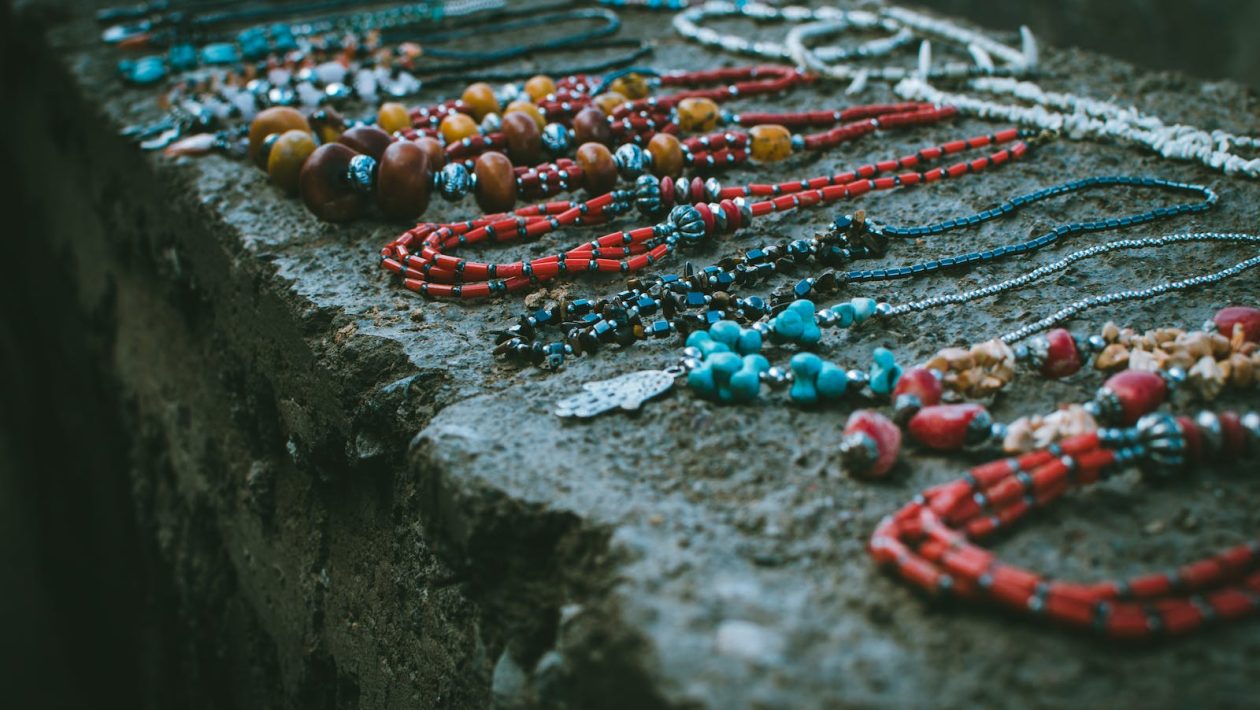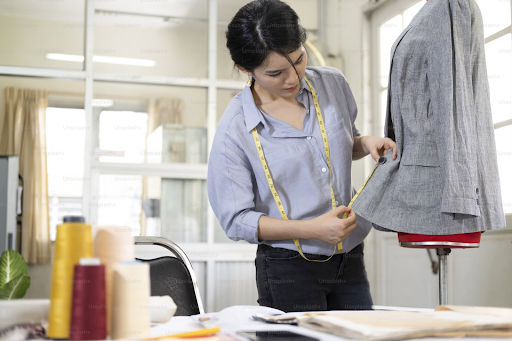The demand for custom jewelry has seen an increase in popularity over the last few years, according to Toppan Digital. Jewelers are receiving orders for custom-made jewelry pieces every once in a while. This, in turn, has helped the custom jewelry market get a boost in the market.
According to MarkWide Research, 3D printing has also played a crucial role in boosting the popularity of custom jewelry. However, not everyone prefers this modern approach to making custom jewelry. Some still opt for the traditional approach and make their custom pieces at home, preferably in a makeshift workshop.
If you have a passion for jewelry making and want to take your craft to the next level, setting up a jewelry workshop at home can be a fulfilling and convenient option. Having a dedicated space where you can create and experiment with various designs will enhance your productivity and creativity.
To help you get started, here are a few essential tips for setting up a jewelry workshop at home:
#1 Choose the Right Space
Selecting the ideal space for your jewelry workshop is crucial. Look for an area that offers enough room to accommodate your workbench, tools, and supplies. A spare room, basement, or garage can be great options, as they provide a separate and relatively quiet environment.
Ensure that the space has good ventilation and sufficient lighting to create a comfortable and well-lit work area. It should also have sufficient power outlets to power all your tools and equipment.
Avoid setting up shop in a place that gets damp. The moisture will interfere with your tools and equipment. That, in turn, will hamper the accuracy of your finished pieces.
#2 Invest in Essential Tools and Equipment
To set up a functional jewelry workshop, you will need a range of tools and equipment. Start with the basics, such as pliers, cutters, files, a jeweler’s bench, and a sturdy workbench. Additionally, consider investing in a flex shaft machine, a polishing machine, a soldering station, and a small torch for soldering metals.
You also need to invest in good weighing equipment, especially if you’re using things like gold or silver in your jewelry. According to Scales Galore, precision balances provide weighing accuracy with readability of 0.0001 milligrams. They also come with user-friendly weighing pans and clear documentation for proper usage. Not having such scales in your jewelry workshop would lead to inaccurate stone sizes and weights.
As for the prices of these scales, expect to spend between $900 and $1,200. This estimate is based on the prices of Sartorius scales. There are also more expensive options, like the GBB14202S-0CE, which costs upwards of $14,000. However, for your at-home workshop, getting a scale under $1,200 will be enough.
#3 Organize Your Supplies
Keeping your supplies organized is crucial for an efficient and productive jewelry workshop. Use storage solutions such as cabinets, drawers, and plastic containers to store your beads, gemstones, wires, and findings.
Also, consider having a pegboard on the wall to hang your frequently used tools, keeping them within reach. Maintaining a neat and organized workspace will save you time and prevent frustration during your creative process. Label all your boxes and containers that contain beads, gemstones, or any other materials or tools. That way, you won’t have to search for anything with too much effort.
Any time you’re out of supplies, take note of it and order it immediately when you can. The last thing you’d want is to sit down to make or repair a jewelry piece and not find the right supply to get the job done.
#4 Ensure Proper Lighting and Safety
Proper lighting is essential for jewelry making, as it allows you to see the details of your work clearly. If natural light is limited, invest in high-quality, adjustable task lighting that provides a bright, focused beam in your work area. Consider placing additional light sources strategically to eliminate shadows and enhance visibility.
Safety should be a top priority in your jewelry workshop. Always wear appropriate safety gear, such as safety glasses, a dust mask, and gloves when necessary. Keep a fire extinguisher in close proximity, especially if you’re working with flammable materials.
Familiarize yourself with the proper handling and disposal of chemicals and follow safety guidelines for working with heat and electricity. It’s also a good idea to have a first aid kit readily available in case of any accidents or injuries.
Conclusion
According to Gitnux, 70 percent of jewelry buyers get their custom jewelry pieces online instead of buying them from physical stores. This, of course, is the easier route, and the final piece you get in your hands might not always be what you had expected.
However, if you make it yourself, not only will the jewelry be more accurate to how you envisioned it, but it will also feel satisfying to you. After all, what you’re crafting inside your at-home jewelry workshop is nothing short of art.
If all this sounds exciting, and you really want to make or fix jewelry pieces at home, it’s time you set up a workshop for yourself. The suggestions we’ve left you with above will help you a great deal in this regard.





